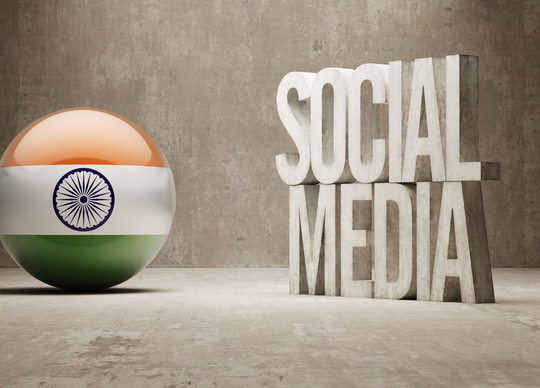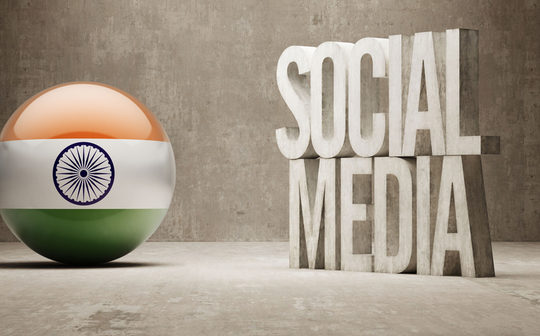
By Sarosh Bana, Mumbai Correspondent.
In yet another salvo against social media in India, though this time with a twist, the police have registered a case against Facebook CEO Mark Zuckerberg over a controversial post against an Opposition leader, rather than against a ruling Bharatiya Janata Party (BJP) representative as has hitherto been the trend.
The police made out the case following a lawsuit filed at a court in Kannauj district in the north Indian state of Uttar Pradesh (UP). The police and court cases were reportedly filed by a villager in the district, on what he believed was a slur on Akhilesh Yadav, who is a former Chief Minister of UP and heads the regional Samajwadi Party that is a rival to the BJP in the upcoming elections in this most politically influential state in India.
The cases name 49 others, apart from Zuckerberg. Though the Silicon Valley-based chief of Meta Platforms, as Facebook is now called, has not cast any slur himself, the police’s FIR (first information report) names him because his platform was used to post the derogatory comments. They later dropped the charges against him.
Over a year ago, Zuckerberg’s social media and social networking giant had been on the other side of the divide, being pilloried on social media for its role in the conduct of elections in the country and its laxity towards bigoted and inflammatory posts of BJP leaders. The wide-ranging criticism and the searing discontent of Facebook India employees had led the company’s then public policy director in India, Ankhi Das, to step down amidst charges of her communal bias and political affiliation. Das was reported to have told her staff that “punishing violations by politicians from [Prime Minister Narendra] Modi’s party would damage the company’s business prospects in the country”.
Last year, the Modi government had similarly targeted Twitter because its then CEO, Jack Dorsey, had ‘liked’ tweets of international pop star Rihanna, Sweden’s teenaged climate activist Greta Thunberg, adult-star-turned-model Mia Khalifa, and US Vice President Kamala Harris’s niece, Meena Harris, supporting Indian farmers then agitating against government policy. BJP leaders had reviled these four women, their anger echoed online by the legions of government-sponsored trolls and pro-establishment film stars and cricketers.
The authorities asked Twitter to block the Twitter handles of 350 farmer leaders, even as India’s social media were awash with posts that deemed it demeaning that the government of the world’s largest democracy could so ‘over react’ to celebrity tweets by implying they could “threaten the country’s unity”. Opposition leader Shashi Tharoor had said the government’s “undemocratic behaviour” and unfounded alarm at foreign celebrities’ tweets had hugely damaged India’s global image.
It was also felt that if the Indian police try to exceed their territorial jurisdiction in targeting foreigners, they would be inviting ridicule.
In June, a right-wing Hindu leader filed a police case against then Twitter India Managing Director Manish Maheshwari for a map showing a part of India as separate from the country. The map, which appeared on the career section of the Twitter website, was subsequently removed, but when additional cases came up against Twitter, Maheshwari was moved to a bigger role at the company headquarters in San Francisco. The case was then the third against Twitter amidst varied disputes between the social media giant and the BJP government on compliance with new information technology rules.
The new IT rules, which became effective in May, have been framed to regulate social media companies, streaming, and digital news content, bringing them, for the first time, under government supervision.
The Delhi police filed an FIR in June against several Instagram accounts on charges of spreading hatred and promoting enmity between different religions groups. Calling the posts part of a “conspiracy by foreigners who are trying to disturb the environment” in the country, the police accused the Instagram handles of putting up posts concerning the farmers’ protest, and for hosting pictures of Hindu gods and Sikh gurus with “objectionable and vulgar comments”. The accounts were consequently blocked.
India’s social media have for long expressed alarm at what they perceive to be the government’s increasing intolerance to criticism and dissent. Many users, as well as Opposition leaders, journalists, libertarians and activists have been tracked down or arrested under harsh sedition and anti-terrorism laws for expressing themselves against the government or for merely forwarding such posts.
There have been absurd precedents set in such government action. On 1 January, stand-up Muslim comedian Munawar Faruqui was arrested when some men from right-wing Hindu organisations who were in the audience pounced on him and whisked him away to a police station for “objectionable” remarks he had made four years ago and had already publicly apologised for. Though his act was yet to come up, he was charged for “intending” to make similar offensive comments.
Thirty-year-old Faruqui was jailed by the police for over a month, though they had no evidence against him. Yet his bail plea was rejected two times, until the Supreme Court granted him bail in early February. Finally, when 12 of his shows at various venues across the country were cancelled within two months, the comedian announced his decision in November to quit stand-up comedy. He explained that the cancellations were due to ‘pressure’ created on event organisers and venue hosts, and over threats of vandalism. Proceeds of his latest show were supposed to go towards charity, but permission was not granted on grounds that the event may create a law and order situation.
In November, the opposition Trinamool Congress Youth President Saayoni Ghosh was arrested by Tripura police in north-east India on charges of “promoting enmity between people, attempt to murder, criminal intimidation, and criminal conspiracy”. The young lady, who was in Tripura to campaign for the state elections, had uttered her party campaign slogan “khela hobe” (Bengali for “the game is on”) from a car as it passed an election rally reportedly being addressed by Tripura’s BJP Chief Minister Biplab Kumar Deb.
Ghosh then said, “I have been charged with attempt to murder just for saying khela hobe.” BJP MP Locket Chatterjee, however, remarked later, “Khela hobe means the death of over 60 workers, migration of over 100,000 workers, it means gang-rape and atrocity on women.”
Acting on a complaint by a BJP worker, the police summoned Ghosh to the police station for questioning. When other party workers arrived at the station, they found out that the youth leader had been arrested. The police said, “We received a complaint against her and summoned her for interrogation. After recording the statement of witnesses, we found evidence that she had involvement in connection with the case…..So, we have arrested her.”






